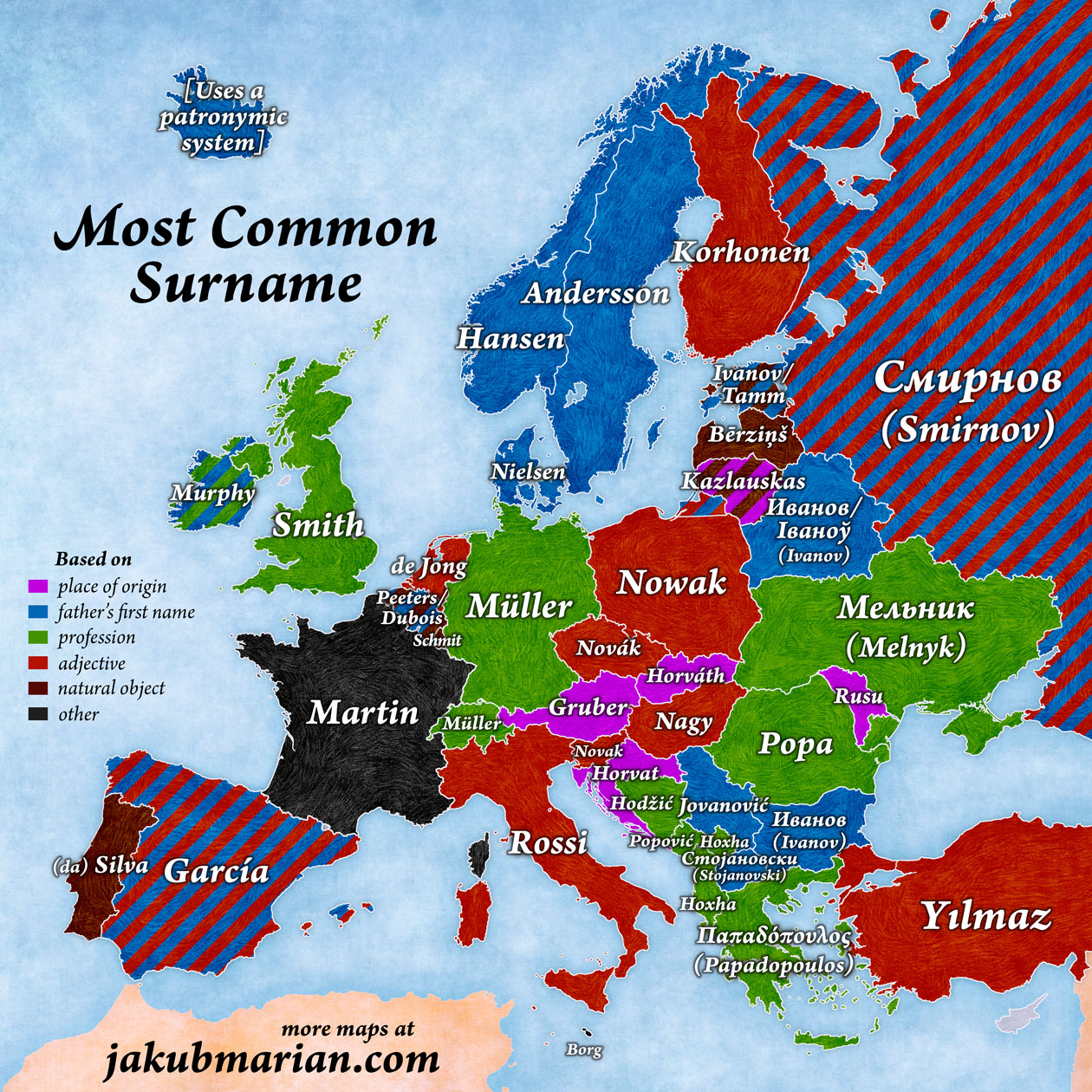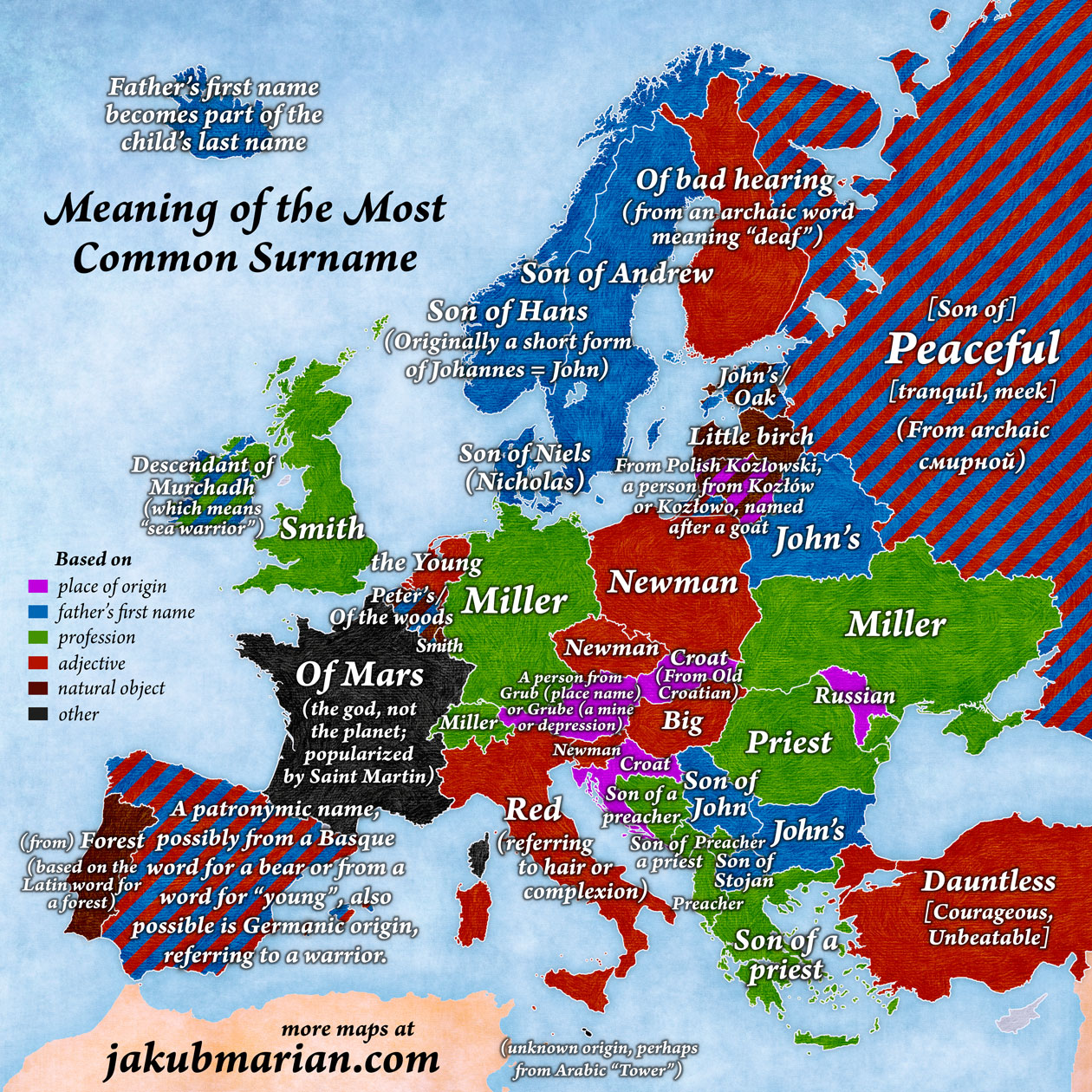Onomastics is a fascinating area of linguistics concerned with the study of the history and origin of proper names. Today’s map lies on the boundary between onomastics and statistics—we are going to take a look at the most common surnames in European countries and their meanings:

Of course, nobody can understand all of the languages the names come from, which is why I have created a second map, now with a translation of the names above into English:

There are several things to note: Family names are uncommon in Iceland; instead, its citizens still use an ancient Nordic system, in which a child inherits the first name of its father its last name (the last name of a son of an Icelandic man called Jón would be Jónsson, literally Jón’s son).
We can still see remnants of this system in other Nordic countries, where names ending with -son are common but are now proper family names, inherited by the children no matter what the first names of their parents are.
In Lithuania, while the name Kazlauskas was probably mostly brought from Poland via migration, there is also a possibility that it was adopted by some Lithuanians who had the word for a goat in their original surname during the era of polonization.
Note also that when there are two vastly different linguistic communities within a country, I included the top names for both whenever I was able to find the necessary data. This was the case of Belgium (the two names are for the Dutch- and French-speaking parts) and Estonia (with Russian and Estonian names). I wasn’t able to find any statistics at all for Cyprus.
 Tip: Are you a non-native English speaker? I have just finished creating a
Tip: Are you a non-native English speaker? I have just finished creating a  Web App
Web App
